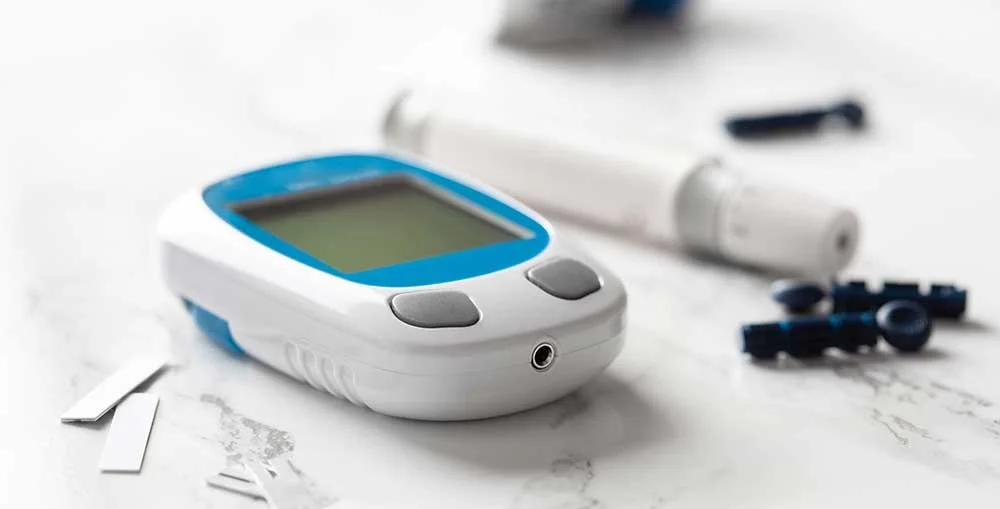Type 1 & Type 2 Diabetes: Key Differences Explained
Table of Contents Show
At West End Wellness, we're all about embracing wellness and spreading positivity. This Diabetes Awareness Month, we're turning the spotlight on a condition that touches the lives of so many people and their families: Diabetes.
Understanding diabetes isn't just about knowing the symptoms or treatments; it's about connecting with the real-life stories of millions worldwide who live with this condition every day.
We're here to share insights that not only inform but also inspire hope and guidance. Whether you're newly diagnosed, supporting a loved one, or a healthcare professional giving your all, our goal is to bring clarity to the uncertainty and direction where it's most needed.
Join us as we delve into the world of Type 1 and Type 2 diabetes – understanding their differences, challenges, and how we can work together for a healthier tomorrow.
Key Takeaways
Type 1 Diabetes: This is an autoimmune condition where the body says 'no' to insulin production.
Type 2 Diabetes: A metabolic condition where the body and insulin don't see eye to eye.
Which is More Common?: Type 2 takes the lead in prevalence.
Managing the Conditions: Both types need careful management, but the game plans differ.
Potential Complications: If not managed well, both types can lead to serious health issues.
Prevention Tips: Lifestyle changes can be a game-changer in preventing or delaying Type 2 diabetes.
When we talk about diabetes, we often deal with two distinct types, each with its own challenges and management strategies. Let's break it down into a simple comparison to make it easier to understand how they differ and what they share.
Here's a quick guide to help you see the differences and similarities between Type 1 and Type 2 diabetes at a glance:
| Aspect | Type 1 Diabetes | Type 2 Diabetes |
|---|---|---|
| Main Issue | The body stops making insulin. | The body struggles to use insulin effectively. |
| Common symptoms | - Constant thirst - Frequent urination - Unexpected weight loss - Extreme fatigue - Blurred vision |
- Gradual weight gain - Constant tiredness - Blurred vision - Slow healing of wounds |
| Onset | Often rapid and dramatic. | Usually slow and subtle. |
| Who's Affected | Commonly diagnosed in children and young adults. | Often seen in adults, but increasingly in children. |
| Management | Requires lifelong insulin therapy. | Managed with lifestyle changes, medications, or insulin. |
| Lifestyle Impact | Every aspect of life (diet, activity, travel) needs consideration. | Requires ongoing adjustments in diet and exercise. |
This table provides a snapshot of how Type 1 and Type 2 diabetes are unique, yet both demand attention and care. Understanding these differences is crucial for anyone dealing with diabetes, whether it's you, a loved one, or if you're a healthcare provider.
Understanding Type 1 Diabetes: The Autoimmune Challenge
Type 1 diabetes is like an unexpected plot twist in your body's story. It's an autoimmune condition, which means your immune system, the body's defense against invaders, mistakenly attacks and destroys the insulin-producing cells in your pancreas. This leads to a big problem: your body can't make insulin anymore.
What Happens in Type 1 Diabetes
Diagnosis and Onset: It's usually a sudden and surprising diagnosis, often in children and young adults.
Symptoms: These can hit you fast and hard, with excessive thirst, frequent urination, unexpected weight loss, and fatigue.
Treatment: Life with Type 1 means you and insulin will be lifelong partners. You'll also be keeping a close eye on your blood sugar levels.
Daily Life Impact: Everything from what you eat to how you exercise needs to be thought about. It's a journey of continuous learning and adapting.
Decoding Type 2 Diabetes: The Metabolic Hurdle
On the other side, we have Type 2 diabetes. It's more like a slow and gradual change in the way your body handles insulin. Here, your cells start to resist insulin's effects, or your pancreas doesn't make enough of it. It's a metabolic disorder that often sneaks up over time.
Understanding Type 2 Diabetes
Diagnosis and Onset: This type is more common in adults but is sadly on the rise in kids too. The onset is gradual, often sneaking up unnoticed.
Symptoms: They can be subtle – weight gain, feeling tired all the time, blurred vision, and slow healing sores.
Treatment: Managing Type 2 can involve oral medications, insulin, or both. But lifestyle is key – diet and exercise can make a huge difference.
Life Adjustments: It's all about making sustainable changes – tweaking your diet, staying active, and understanding your body's needs.
While Type 1 and Type 2 diabetes are different beasts, they both come with their own set of risk factors. Type 1 often dances to the tune of genetics and can show up unexpectedly.
Type 2, however, is more likely to be influenced by lifestyle choices like diet, physical activity, and body weight, though genetics can join the party too.
Preventative Measures for Type 2 Diabetes: Lifestyle at the Forefront
Here's some good news: when it comes to Type 2 diabetes, you've got more control than you might think. Lifestyle choices play a huge role in either inviting or keeping this type of diabetes at bay.
Tips for Prevention and Management
Healthy Weight: Keeping a check on your weight is a big deal. It’s about finding a balance – not too much, not too little.
Get Moving: Regular physical activity is like gold for your body. It helps manage weight, blood sugar, and overall well-being.
Balanced Diet: What you eat matters. A diet rich in fruits, veggies, whole grains, and lean proteins can work wonders.
Stay Informed: Knowledge is power. Understanding how lifestyle impacts diabetes can motivate you to make healthier choices.
Health Complications: Beyond Blood Sugar
When it comes to diabetes, it's not just about keeping blood sugar levels in check. Both Type 1 and Type 2 diabetes, if not managed well, can invite a bunch of unwelcome guests in terms of health complications.
We're talking serious stuff like kidney failure, heart disease, vision loss, and nerve damage.
Why Regular Check-Ups Matter
Staying alert with regular health check-ups is essential as they are your best defense, vigilantly keeping an eye out for any early signs of trouble. Alongside, smart management of conditions like diabetes plays a crucial role in keeping complications at bay, emphasizing the importance of teamwork between you and your healthcare provider for optimal health.
Preventative Measures for Type 2 Diabetes: Lifestyle at the Forefront
Here's some good news: when it comes to Type 2 diabetes, you've got more control than you might think. Lifestyle choices play a huge role in either inviting or keeping this type of diabetes at bay.
Healthy Weight: Keeping a check on your weight is a big deal. It’s about finding a balance – not too much, not too little.
Get Moving: Regular physical activity is like gold for your body. It helps manage weight, blood sugar, and overall well-being.
Balanced Diet: What you eat matters. A diet rich in fruits, veggies, whole grains, and lean proteins can work wonders.
Stay Informed: Knowledge is power. Understanding how lifestyle impacts diabetes can motivate you to make healthier choices.
FAQs on Diabetes Types
Q. Clearing Up Common Queries
Let’s tackle some frequently asked questions to clear up common confusion about Type 1 and Type 2 diabetes.
Q. What's the main difference between Type 1 and Type 2 diabetes?
Type 1 is an autoimmune issue leading to no insulin production.
Type 2 is more about insulin resistance and is often linked to lifestyle factors.
Q. Can kids get Type 2 diabetes?
Yes, unfortunately. With rising childhood obesity, Type 2 diabetes is increasingly being diagnosed in children and adolescents.
Q. Is Type 1 diabetes preventable?
Currently, there's no known way to prevent Type 1 diabetes, as its exact cause is still a bit of a mystery and it's usually unrelated to lifestyle or diet.
Q. Can lifestyle changes cure Type 2 diabetes?
While there's no cure as such, making smart lifestyle choices can significantly manage and control Type 2 diabetes, reducing the risk of complications.
Comprehensive Management Strategies for Both Diabetes Types
Managing diabetes effectively involves a combination of medical treatment, lifestyle adjustments, and support.
Let’s look at how these elements play out for both Type 1 and Type 2 diabetes.
| Strategy | Type 1 Diabetes | Type 2 Diabetes |
|---|---|---|
| Medical Treatment | Lifelong insulin therapy is essential. | May include oral medications, insulin, or both. |
| Lifestyle Adjustments | Diet and exercise are crucial, alongside regular blood sugar monitoring. | Focus on diet, exercise, and weight management, along with blood sugar monitoring. |
| Support Systems |
Access to healthcare providers and continuous education is key. Emotional support from family and friends is invaluable. | Regular consultations with healthcare providers and educators. Emotional and social support is vital. |
Individualized Care: Tailoring Treatment to the Person
Every person with diabetes has a unique story. That's why treatment plans aren't one-size-fits-all; they're as individual as you are. So what does that mean:
Customized Treatment: Your healthcare team will work with you to tailor a plan that fits your lifestyle, preferences, and other health conditions.
Regular Adjustments: As life changes, so might your diabetes management. Regular check-ins with your doctor help keep your plan effective and up-to-date.
Innovations in Diabetes Management
Technology is changing the game in diabetes care, making management easier, more efficient, and less intrusive. There is continuous Glucose Monitoring (CGM) with these devices constantly tracking your blood sugar levels, offering real-time insights. Plus, there are insulin pumps that automate insulin delivery, reducing the need for frequent injections.
Nutritional Aspects of Diabetes Management
Eating Smart for Diabetes and managing diabetes isn't just about medications; it's also about what's on your plate. Here are some points to consider when it comes to dietary management:
Balanced Eating: A diet rich in fruits, vegetables, whole grains, and lean proteins is key.
Consulting a Dietitian: Nutritionists and dietitians can provide personalized advice to help manage your blood sugar through diet.
In Conclusion
As we wrap up our exploration into the world of diabetes, it's important to remember that whether it's Type 1 or Type 2, the journey is deeply personal and unique. Neither type is "worse" – both require understanding, empathy, and proactive management.
We are united in our message, emphasizing the importance of understanding each type in its own right rather than making comparisons.
This understanding is key to managing them proactively and diligently, which is essential for preventing complications and ensuring a high quality of life. Amidst this, we find hope and optimism in the ongoing research and technology progress.
These advances are not just scientific achievements; they're stepping stones toward better management practices and the exciting possibility of future cures.
For those affected, Remember you’re not alone on this journey. There's a wealth of support and resources available. And for caregivers and healthcare professionals, your role in providing care and support is invaluable. Continue to educate and empower those you care for.
Together, we can navigate the challenges of diabetes with knowledge, compassion, and resilience. The path to wellness is not just about medical treatment; it's about holistic care, community support, and the empowerment of each individual on their journey.
At West End Wellness, we're committed to being part of this journey, offering guidance, information, and support every step of the way. Let's continue to build a world where every person with diabetes can live a full, healthy, and vibrant life.
For General Diabetes Information:
The American Diabetes Association (ADA) website at www.diabetes.org.
The Centers for Disease Control and Prevention (CDC) at www.cdc.gov/diabetes.
For Type 1 Diabetes Symptoms:
The Juvenile Diabetes Research Foundation (JDRF) at www.jdrf.org.
The National Institute of Diabetes and Digestive and Kidney Diseases (NIDDK) at www.niddk.nih.gov.
For Type 2 Diabetes Symptoms:
Mayo Clinic at www.mayoclinic.org.
WebMD at www.webmd.com.
If you have any further doubts or questions regarding this subject or another treatment, contact one of our experienced Acupuncturists or Registered Massage Therapists here at West End Wellness Clinic. You can either give us a call or make an appointment.
Disclaimer: Please remember this article is for informational purposes only and should not replace professional medical advice. Please consult a healthcare provider or someone with the correct qualifications before starting any new exercise or treatment program.




